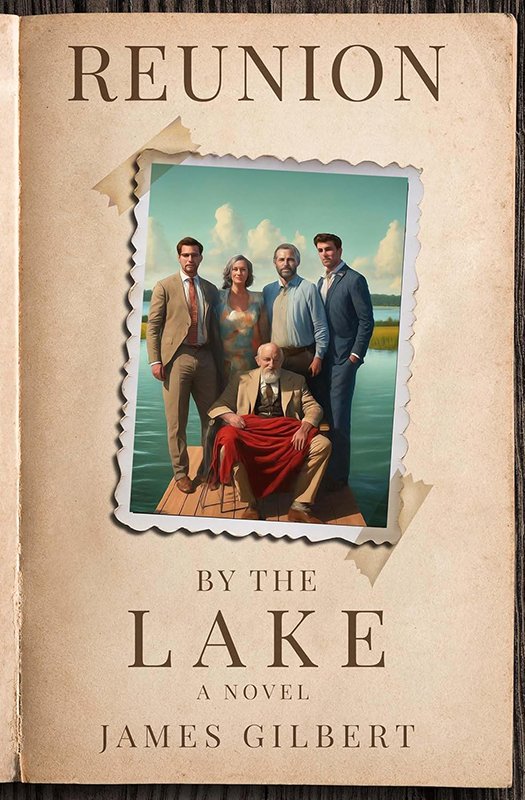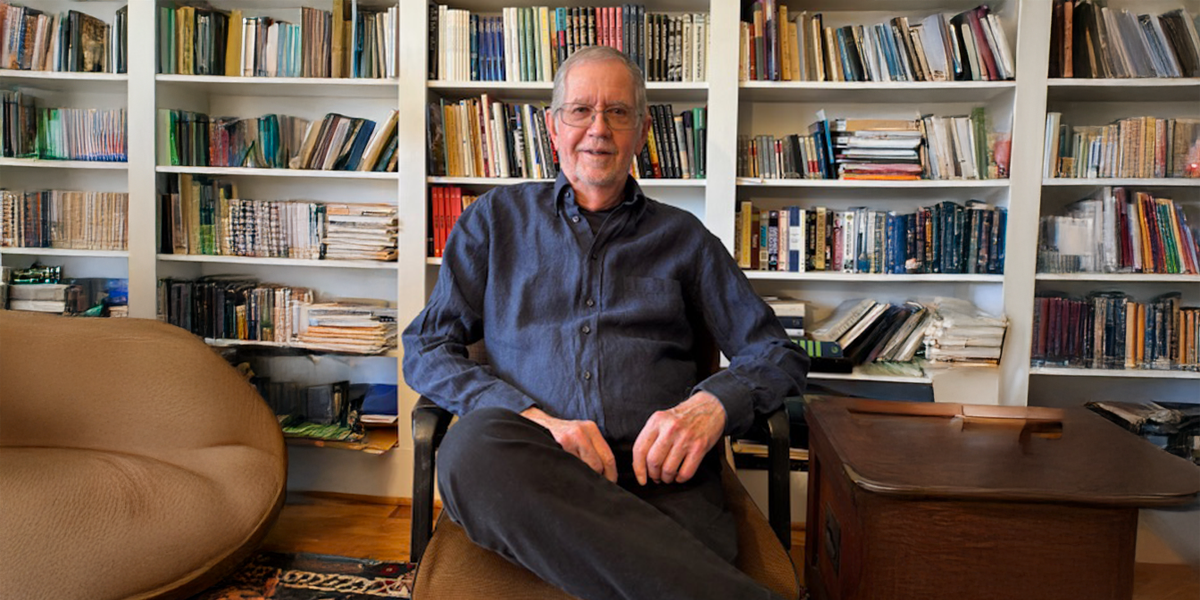PHOTO: Award-winning author James Gilbert, whose literary works blend history, culture, and intrigue, continues to captivate readers with his compelling storytelling and masterful mystery writing.
The Art of Blending History and Imagination
James Gilbert, an acclaimed historian-turned-novelist, discusses his transition to fiction, the inspirations behind his Amanda Pennyworth Mystery Series, his global experiences, and how history shapes his compelling narratives.
James Gilbert’s name is synonymous with intellectual curiosity and masterful storytelling. With a career spanning academia and fiction, he has brought history to life in one form and crafted gripping narratives in another. As a distinguished Professor of American History at the University of Maryland, his scholarly contributions shaped discussions on twentieth-century culture. Yet, his restless pursuit of understanding the human experience ultimately led him to fiction, where he continues to explore the intricacies of identity, society, and mystery.
His Amanda Pennyworth Mystery Series is a testament to his ability to weave suspense with cultural insight, creating a protagonist who navigates diplomacy as deftly as she unravels crime. With Murder at Amapas Beach, Gilbert demonstrates the skill of a seasoned mystery writer, blending atmosphere, tension, and character development in a way that echoes the best of classic whodunits while offering something distinctly modern. Beyond his mysteries, his novels such as The Legacy and his short story collections immerse readers in richly drawn worlds, shaped by his deep understanding of history and human nature.
In this exclusive conversation, James Gilbert reflects on the journey from historian to novelist, the inspirations behind his intricate plots, and the way his global experiences inform his fiction. His words are as insightful as his books—offering wisdom for aspiring writers and an invitation to explore the stories he so expertly crafts.
James Gilbert’s storytelling brilliance seamlessly merges history, mystery, and human complexity, captivating readers with his masterful prose and richly developed characters.
How did your transition from a distinguished academic career in American cultural history to writing fiction influence your storytelling approach?
I was initially surprised to recognize that historical literature and fiction are so closely linked. Even if historians are bound by rules of objectivity, they are, in the first instance, also story-tellers and the inventors of plots. So I consider that my years as a historian to be a kind of apprenticeship for writing novels and short stories.
“Historians are, in the first instance, storytellers and the inventors of plots.” – James Gilbert
What inspired you to create the character of Amanda Pennyworth, the American consul and amateur sleuth in your mystery series?
Several years ago I served on the U.S. State Department’s promotion panel. I met a number of Department diplomats and read hundreds of employee files, coming away with a good sense of what problems and opportunities faced members of the diplomatic corps. Based on my frequent trips to Puerto Vallarta, Mexico, I imagined what it might be like to be the sole American representative in a popular foreign tourist destination. So many opportunities for things to go wrong!
Could you share the process behind developing the plots for the Amanda Pennyworth mystery series, particularly in ‘Murder at Amapas Beach’?
Like so many writers, the plots of my novels develop out of memories or references to my own experiences. During one of my visits to Puerto Vallarta, I went on a day trip to a nearby beach—in the company of a group of Americans. When I sat down to develop my novel, I thought this would be a perfect setting for a mystery: an isolated location and a limited group, one of whom would be the victim and another, the murderer. In a way, this closed circle was something like the traditional country house filled with suspects that Agatha Christie used as her staple. But, of course, I had to invent motives and characters. And then I decided to move the scene abruptly back to the United States to the home town of the American tourists in the second half of the book. And then stage another murder with the same suspects. And, of course, create a plausible reason for Amanda to be present.
In each of my Pennyworth novels, I have also tried to develop the character of Amanda, to let the reader know much more about her, her background, her relationships, and about how she went about solving the mysteries that confronted her—even as she had to face the ongoing, daily problems of serving as American consul.
Your short story collections often revolve around specific places and time periods with interconnected characters. How do you approach crafting these narrative?
Both of my short story collections reference places, or especially in the case of “Tales of Little Egypt,” historical events and cultures that I know well, either from historical research or actual experience. Creating the stories, however, comes from imagining what it would be like to live in these situations. In this way, the setting creates possibilities for characters to come alive in the very special worlds where they exist.
In ‘The Legacy’, you delve into the complexities of the legal world. What motivated you to explore this setting, and how did your background inform this novel?
I grew up in a family situated in a world of lawyers and legality, although I never studied law myself. But I am sure that this background focused my attention on the two most important documents that describe any individual: a birth certificate and a will. The first defines where a person comes from and the second reveals what she or he has made of themselves—how they reach into the future to define their heritage. In the case of my novel, both documents disguise and then reveal secrets that shatter the relations of a troubled family and threaten the reputation of a law firm.
Having taught at various international institutions, how have your global experiences shaped the settings and themes in your fiction works?
Living abroad for a number of years and being immersed in foreign languages and cultures had been instrumental in my fiction. I think foremost, it has empowered me to imagine environments and individuals outside my given world. I suppose, too, in some instances, that I have borrowed people I have met and transformed them into characters in my novels and stories. But there is also, I believe, something amazingly enlightening—something that untethers the imagination, in confronting the unexpected which inevitably occurs when living in a culture that isn’t your own.
“Living abroad has empowered me to imagine environments and individuals outside my given world.” – James Gilbert
Your historical writings, such as ‘A Cycle of Outrage’, examine societal reactions to cultural phenomena. How has this perspective influenced your fiction writing?
The most important idea I’ve drawn from history is to realize the power of culture to define a setting or template in which people act and events occur. In all of my fiction writing, I try to devote special attention to the plausibility of the atmosphere, the prevailing beliefs and moods, even the time periods, and the particularities of the locations and individuals who are my characters.
What advice would you offer to aspiring authors transitioning from academic writing to fiction storytelling? Of course, my answer has to do with the particular academic field, and that, certainly has to be influential in how the author confronts fiction. But the simple and best advice I can give is find ways to use whatever knowledge and expertise has been gained in academics. Almost every discipline requires and values writing—good writing—and that can be a wonderful beginning. And from there, remember and rejoice in the freedom that fiction allows!
EDITOR’S CHOICE
A poignant and deeply moving novel, Reunion by the Lake masterfully explores family, legacy, and the emotional weight of inheritance.



